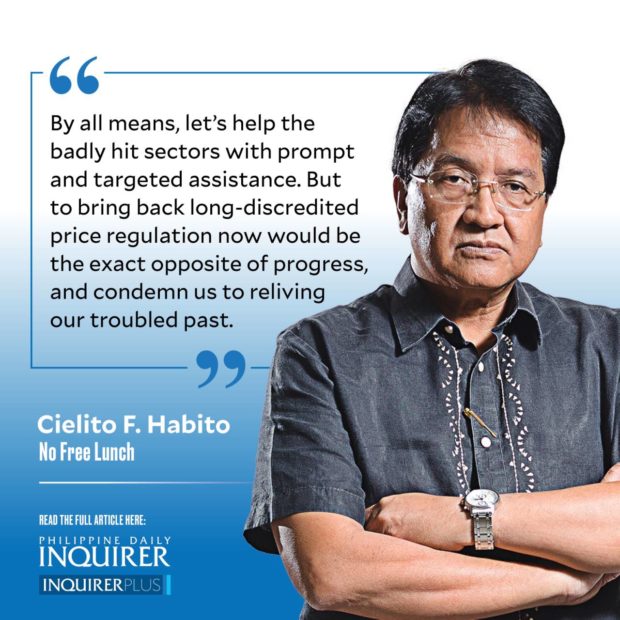Re-regulate the oil industry?
“Those who cannot remember the past are condemned to repeat it,” wrote George Santayana well over a century ago. I quote the Spanish philosopher here not in the context of the coming elections (though it very well applies too), but in response to the new round of calls — for the nth time in so many years — to bring back oil industry regulation.
I wouldn’t be too surprised to hear it from those too young to know how things were back when the industry was regulated. But coming from people who saw how it was like then, I find it puzzling, to say the least. Either shortness of memory or some other inexplicable reason leads them to push for an idea that had long been shown to be counterproductive and had actually worked against the interests of the Filipino public.
Article continues after this advertisementThe centerpiece of that failed price regulation policy, which some so-called “progressives” would like to see revived, was to establish an Oil Price Stabilization Fund (OPSF) administered by the Department of Energy. For the headaches it gave us economic managers at that time, we felt it more apt to call it the Oil Price Stabilization Fiasco or Oil Price Destabilization Fund. In theory, the OPSF seemed a good idea, aimed to smoothen frequent movements in domestic petroleum prices by fixing prices over given periods even as the world crude oil price moved up and down. When that price went below the assumed price on which the fixed petroleum product prices were based, oil companies paid the difference into the OPSF. When crude oil prices went above the basis price, the fund compensated the oil companies for the difference. With proper management and timing of domestic petroleum price adjustments, payments into and out of the fund should balance out over time.
But the devil came (and I’m certain will again come) in its implementation. For one thing, a former energy official observed how the OPSF became the government’s “cash cow,” especially when it found itself saddled with large fiscal deficits — which in the late ‘80s and early ‘90s was practically all the time, as it is again now. That is, when the OPSF was in surplus, the government would dip its fingers into the fund that was solely meant for the gas price smoothing mechanism.
Worse, the government consistently failed to adjust petroleum prices upward when it was time to do so, i.e. when sustained world crude price hikes depleted the OPSF. Adjusting domestic petroleum prices became a political decision, rather than the objective and technical mechanism it was supposed to be. The government delayed needed upward price adjustments for populist reasons, especially during election season, leading the OPSF to run into huge deficits in billions of pesos. The deficits were eventually paid for by general taxpayers, forcing even nonpetroleum consumers to bear the burden. And what we saw were even more drastic price increases when the mounting OPSF deficits made further postponement untenable—sometimes when world oil prices were actually moving in the opposite direction. This only served to fuel strong public protests and discontent, often accompanied by violent demonstrations. Stabilization was certainly not the word to describe those outcomes. On top of all that, the system discouraged further investments in petroleum refining, as oil companies got burned by long delays in OPSF payments to compensate them for losses when world prices were high and rising.
Article continues after this advertisementWe addressed all these issues with the decisive move we made in 1998 to have petroleum prices reflect true market conditions, like most of the world does, while we also fostered greater market competition. There’s a new proposal to set up a Strategic Petroleum Reserve to be filled when world prices are low, and drawn from when prices get destabilizingly high. But high storage costs and cost of tying up money, plus similar issues on politicized management of the reserve (as with the OPSF) raise serious questions on its viability. By all means, let’s help the badly hit sectors with prompt and targeted assistance. But to bring back long-discredited price regulation now would be the exact opposite of progress, and condemn us to reliving our troubled past.
cielito.habito@gmail.com

















